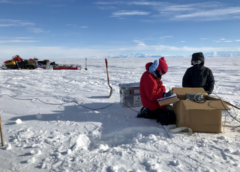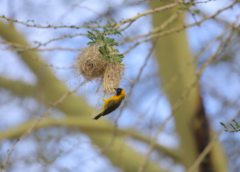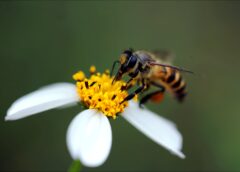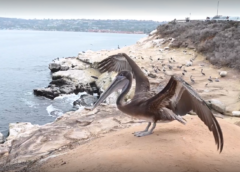Category: The Earth
-
In sediments below Antarctic ice, scientists discover a giant groundwater system

Previously unmapped reservoirs could speed glaciers, release carbon Newswise — Many scientists say that liquid water is a key to understanding the behavior of the frozen form found in glaciers. Melt water is known to lubricate their gravelly bases and hasten their march toward the sea. In recent years, researchers in Antarctica have discovered hundreds…
-
Actionable Environmental Impacts at Home: Swap common household devices to curb your carbon footprint

(Family Features) In every room of your home, you’ll likely find numerous devices, appliances and fixtures that rely on the electric grid for power. Collectively, they affect your carbon footprint more than you may realize. Converting to lower carbon alternatives can help you be a better steward for the environment while reducing your reliance on…
-
Water scarcity predicted to worsen in more than 80% of croplands globally this century

Farming techniques that keep rainwater in agricultural soils could help mitigate shortages in arid regions Newswise — WASHINGTON—Agricultural water scarcity is expected to increase in more than 80% of the world’s croplands by 2050, according to a new study in the AGU journal Earth’s Future. The new study examines current and future water requirements for global agriculture and predicts whether…
-
U.S. Department of Energy Solar Energy Technologies Office Selects GridBright, Inc., to Lead the Effort to Integrate Solar Energy Into Utility Control Rooms Securely

Project supported by an ecosystem of utility, research, and technology collaborators, including San Diego Gas & Electric (SDG&E), DOE’s National Renewable Energy Laboratory (NREL), and Oracle SAN FRANCISCO (Newswire.com) – The U.S. Department of Energy Solar Energy Technologies Office (SETO) announced the award of GridBright‘s project “PIVA: Photovoltaic (PV) Integration using Virtual Airgap” (Award DE-EE0009631) as part of their Fiscal…
-
Vegetarian birds more sociable than insect eaters, shows research

Newswise — Weaver birds that eat seeds flock together and nest in colonies more commonly than those species that eat insects, suggests new research by an international team of scientists led by the Milner Centre for Evolution at the University of Bath. For the first time, the study statistically supports an influential ecological hypothesis on social behaviour…
-
Use your cellphone to improve weather forecasts

Newswise — Ahead of World Meteorological Day, you can help improve weather forecasting models with CAMALIOT, an infrastructure and app that uses GPS from smartphones to support scientific research. Join our crowdsourcing campaign on 17 March 2022 ̶ any person with access to an Android cellphone is invited to download the free app and participate.…
-
Bean cultivation in diverse agricultural landscapes promotes bees and increases yields

Researchers led by Göttingen University study bee behaviour and bean harvests Pollination by insects is essential for the production of many food crops. The presence of pollinators, such as bees, depends on the availability of nesting sites and sufficient food. If these conditions are lacking, the pollinators also fail to appear and the yield of…
-
Recycling Greenhouse Gases with Biotechnology

Biological production of acetone and isopropanol by gas fermentation captures more carbon than it releases. The Science Acetone and isopropanol are important chemicals for industry. They are used to produce materials from jet fuel to solvents to detergents to plastics. Currently, industry produces these two chemicals from petroleum using processes that release carbon dioxide and…
-
Identifying Global Poverty From Space

Newswise — Despite successes in reducing poverty globally in the last two decades, almost one billion people are still living without access to reliable and affordable electricity, which in turn negatively affects health and welfare, and impedes sustainable development. Knowing where these people are is crucial if aid and infrastructure are to reach them. A…
-
SeaWorld Surpasses 40,000 Animal Rescues Underscoring the Ongoing Need to Help Sick, Injured and Orphaned Animals

Rescue and rehabilitation are a vital first step in species preservation Dozens of species, including many threatened and endangered animals, have been helped by SeaWorld since 1965 One of the largest marine animal rescue organizations in the world, SeaWorld has rescue and rehabilitation operations located at each of its three parks SeaWorld is a professionally accredited…
